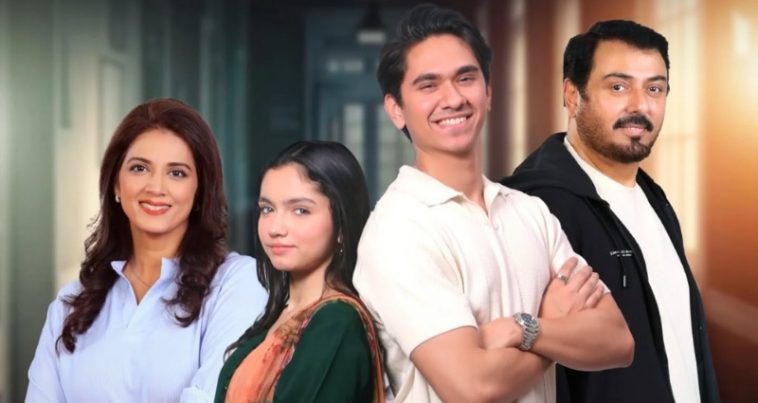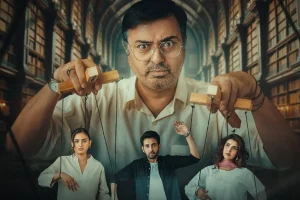For years, Pakistani dramas have struggled to connect with Gen-Z. To many of us, raised on Netflix binges and quick-witted sitcoms, they felt distant, repetitive, and unimaginative. That is, until Parwarish came along.
This wasn’t a drama that turned young people into walking punchlines, caricatured as screen-obsessed brats with junk food in hand. Instead, it gave them depth, heart, and agency. For once, the youth weren’t comic relief — they were people.
Wali (Samar Jafri), Maya (Aina Asif), Ania (Nooray Zeeshan), Amal (Reham Rafiq), and Sameer (Abul Hasan) weren’t just characters — they were faces we recognized from our own lives. Their stories felt lived-in, layered, and deeply human.
A Love Letter to Family
At its core, Parwarish was about family — the warmth, the clashes, and the inevitable reconciliations. The joint family dynamic of Jahangir (Naumaan Ijaz), his wife Mahnoor (Savera Nadeem), and Suleman’s household mirrored countless real-life experiences of overseas Pakistanis who suddenly find themselves “returning home.”
No one was painted as a villain. Even Jahangir, strict and unyielding, was not a tyrant — just a father trying, in his own flawed way, to protect his children. The show beautifully highlighted contrasts between siblings, spouses, and generations, proving that love often hides beneath conflict.
Love, Loss, and the Digital Age
Maya and Wali’s relationship felt refreshingly real — tender, understated, and rooted in everyday care. Meanwhile, Amal’s one-sided love showed us the quiet ache of unrequited feelings without melodrama.
But perhaps the most poignant bond was between Wali and his teacher, Boss (Meesam Naqvi). In a TV landscape that too often sensationalizes teacher-student relationships, Parwarish gave us something better: mentorship, fatherhood, and spiritual guidance. Boss’ death was gut-wrenching, yet instrumental in Wali’s journey.
Difficult Conversations Done Right
Where Parwarish shone brightest was in tackling taboos. From substance abuse to mental health, it did what few dramas dare to — confront uncomfortable realities with compassion.
Whether it was Suleman gently guiding his son away from drugs or Ania finding healing in therapy, the show made a bold statement: conversations, no matter how hard, must be had. Parents and children can sit as equals, disagree, and still choose love.

The Finale: A Missed Opportunity
And yet, for all its brilliance, the last episode stumbled. The long-drawn reconciliation between Wali and Jahangir overstayed its welcome, while other storylines — like Mahnoor and Jahangir’s couples’ counselling or Amal’s romance — felt rushed or unnecessary.
Still, the heart of the show remained intact. Even with its imperfect ending, Parwarish gave us what Pakistani dramas rarely do — authentic representation. For Gen-Z, it was proof that our stories can be told with nuance and respect.
Final Thoughts
Parwarish wasn’t flawless, but it was groundbreaking. It proved that Pakistani dramas can resonate with younger audiences if given the right blend of honesty, relatability, and courage to break stereotypes.
Now that we’ve had a taste of genuine representation, it will be hard to go back. Till the next Parwarish arrives, it seems Netflix will keep us company.






